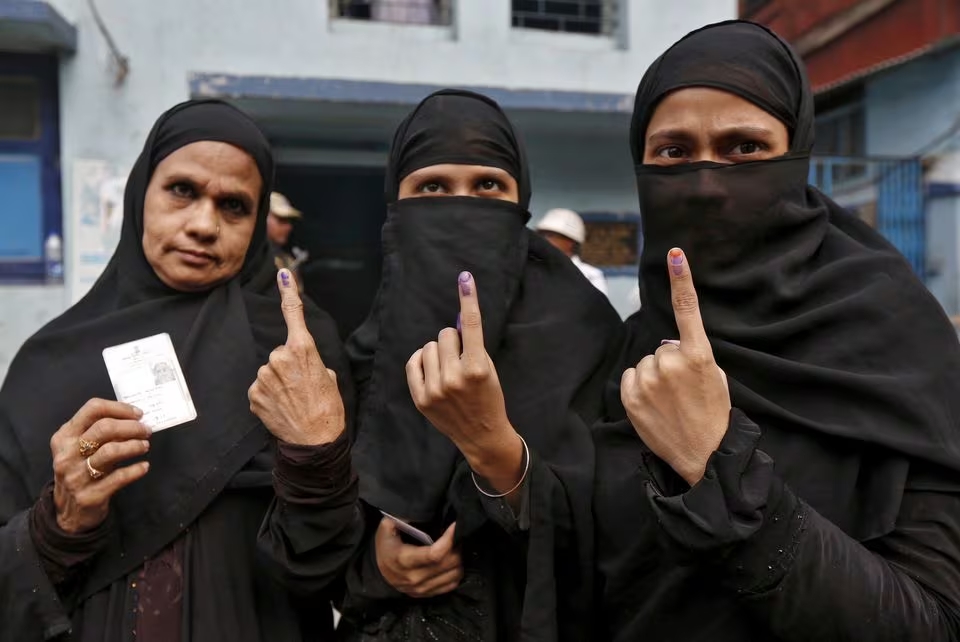The Lok Sabha elections in India are not just about choosing political representatives; they are about shaping the nation’s future, addressing concerns, and advancing the interests of diverse communities. In this upcoming electoral cycle, the Muslim community in India holds a significant stake. With a population of over 200 million, Muslims constitute a substantial portion of the Indian electorate. This article delves into the forthcoming Lok Sabha elections and examines the potential benefits they hold for the Muslim population in India.
Political Representation
One of the primary concerns for any community in a democratic setup is political representation. Historically, Muslims have been underrepresented in Indian politics, leading to a sense of marginalization and disenfranchisement. However, the upcoming Lok Sabha elections offer a platform to address this imbalance. With the emergence of diverse political parties vying for power, there is an opportunity for Muslim candidates to contest elections and secure parliamentary seats. Increased representation not only ensures the articulation of Muslim concerns but also fosters inclusivity in the political landscape.
Policy Advocacy
Elections serve as a crucial mechanism for advocating policy changes and addressing community-specific issues. For the Muslim population in India, key concerns such as socio-economic development, educational opportunities, and religious freedom often take center stage. Through active participation in the electoral process, Muslims can influence political agendas and push for policies that uplift their socio-economic status. Whether it’s equitable distribution of resources, protection of cultural heritage, or ensuring equal rights, the electoral platform empowers Muslims to voice their aspirations and seek redressal for longstanding grievances.
Coalition Politics
In India’s multi-party system, coalition politics plays a pivotal role in government formation. With no single party usually securing an absolute majority, alliances and partnerships become indispensable. This scenario presents an opportunity for Muslim-centric parties or alliances to leverage their electoral clout and negotiate favorable terms within coalition frameworks. By aligning with larger political entities, Muslims can ensure that their interests are not overlooked in the governance agenda. Effective coalition-building can lead to policy concessions, ministerial representation, and allocation of resources towards community welfare programs.
Guardianship of Minority Rights
Securing the rights of religious and ethnic minorities is a cornerstone of India’s democratic ethos. However, instances of discrimination and prejudice against Muslims persist, necessitating vigilant advocacy and legal protection. The outcome of the Lok Sabha elections holds immense significance in this regard. A government committed to upholding constitutional values and safeguarding minority rights can instill confidence and trust within the Muslim community. By actively participating in the electoral process, Muslims can influence the selection of representatives who prioritize the protection of minority interests and work towards fostering a more inclusive society.
Empowerment through Participation
Beyond tangible political outcomes, the act of voting itself is a powerful tool for empowerment. It symbolizes civic engagement, assertion of rights, and active citizenship. For the Muslim electorate, participation in the democratic process is not just a duty but a means of asserting their presence and influence within the national narrative. By exercising their franchise, Muslims contribute to the democratic fabric of India, signaling their desire for meaningful representation and equitable treatment. Moreover, increased voter turnout among Muslims can challenge stereotypes, dispel misconceptions, and promote inter-community harmony.
Challenges and Opportunities
While the upcoming Lok Sabha elections offer significant opportunities for the Muslim community, they also present challenges that need to be addressed. Voter suppression, polarization, and communal rhetoric are some of the obstacles that can hinder meaningful participation and dilute the impact of Muslim votes. It is imperative for political parties, civil society organizations, and religious leaders to collaborate in fostering an environment conducive to free and fair elections. Moreover, concerted efforts must be made to address socio-economic disparities, educational backwardness, and communal tensions that disproportionately affect Muslims.
The forthcoming Lok Sabha elections in India hold immense promise for the Muslim community. From enhancing political representation to advocating for policy changes and safeguarding minority rights, the electoral process presents numerous opportunities for empowerment and inclusion. By actively engaging in the democratic process, Muslims can shape the nation’s trajectory, advance their interests, and contribute to the realization of a more just and pluralistic society. As India prepares to go to the polls, the participation of Muslims will be pivotal in determining the country’s future direction and fostering a culture of democratic pluralism. #Hydkhabar

